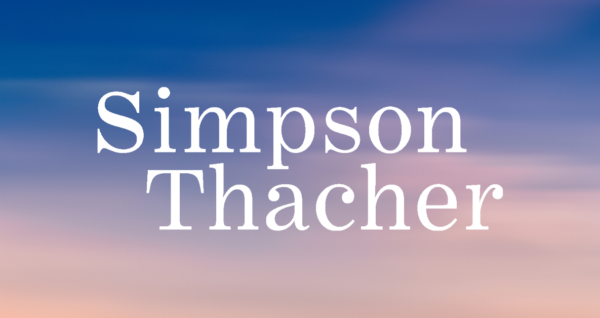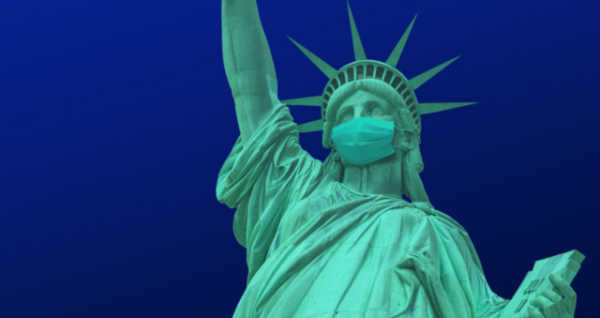At this year’s Above & Beyond Awards, Sanctuary is honoring a team of attorneys from Simpson Thacher & Bartlett (“Simpson Thacher”) for their compassionate and devoted pro bono representation of “Talia” to obtain T Nonimmigrant status.
Nicole Vescova an associate in the Labor & Employment group at Ellenoff Grossman & Schole LLP where she represents and advises businesses in all industries. She is also a member of the Pro Bono Counsel.
—
At this year’s Above & Beyond Awards, Sanctuary is honoring a team of attorneys from Simpson Thacher & Bartlett (“Simpson Thacher”) for their compassionate and devoted pro bono representation of “Talia” to obtain T Nonimmigrant status. The team consisted of Pro Bono Counsel Harlene Katzman, and associates, Dan Levien and Daniel Owsley at Simpson Thacher.
Talia was a young teenager living in her home country when Andrew professed his love for her and asked him to move in with his family. Talia accepted Andrew’s offer, leaving behind her abusive childhood home. Soon after Talia gave birth to their daughter, Andrew convinced Talia that they should head to the United States to seek work and build a better life for their family. Talia knew her daughter was too young to make the dangerous journey across the border, and although hesitant to leave her daughter, Andrew’s forceful urgings to leave and promises that the daughter would be cared for convinced Talia to follow him. Unbeknownst to Talia, Andrew and his family were traffickers.
Talia arrived to America without having any knowledge of the English language or any ties to the country, and most heart wrenching, without her daughter. Immediately, Andrew and his family began harassing Talia, telling her that she owed them a debt for getting her into the country and threatening that they would harm her daughter if she did not pay up. Talia felt trapped, worn down and terrified, and was ultimately forced to “work” in a brothel at Andrew’s demand.
After about a year of being sex trafficked, Talia escaped and went into hiding. Displeased with Talia’s actions, Andrew’s family began harassing Talia’s mother, who was caring for Talia’s daughter back in their home country. Desperate to see her daughter, Talia took the risk to return home, praying she would not be seen but was unfortunately spotted by her traffickers. Andrew’s family continued to threaten her. Realizing she was not safe there, she again returned to the United States.
When originally referred to Simpson Thacher in 2014, the attorneys thought Talia’s application for T Nonimmigrants Status was straightforward. All were surprised when the United States Citizenship and Immigration Services (USCIS) denied her application claiming that she was not present in the U.S. on account of trafficking. Undeterred, Simpson Thacher submitted a motion to reconsider, arguing that USCIS erroneously interpreted the applicable law; Talia had been effectively chased out of her home country by her trafficker’s family. Although the motion was extremely well-written and compelling, that motion was also unfortunately denied by USCIS.
The team was back to square one – but their commitment never wavered. Without T-Visa status Talia would be vulnerable in the US, and if deported back to her home country, her safety was in grave danger.
The team decided to take a different approach. Despite her fear of retaliation, Talia cooperated with law enforcement. Harlene Katzman of the team states that Talia was an extremely motivated and protective mother – “everything she did was orientated towards the safety of her daughter.” She ultimately received continued presence from the Government, which the team used to file a second application for T Nonimmigrants Status.
Talia remained strong throughout the difficult process where she had to re-hash the abuse and exploitation she previously suffered, and the Simpson Thacher team stayed by her side the whole time. Finally, USCIS granted Talia’s second application for T Nonimmigrant Status and granted derivative status to her daughter. Talia and her daughter were reunited this summer, after many years of living apart and in fear.
Jessica-Wind Abolafia, of Sanctuary for Families, applauds the skills, strategy, and perseverance the Simpson Thacher team brought to the matter.
“The team was ready to move mountains – they never gave up. The client knew she had a team that was going to bat for her, and this was crucial in getting her through such a difficult time.” — Jessica-Wind Abolafia, Sanctuary Anti-Trafficking Initiative Director.
—
Join us at our virtual Above & Beyond virtual celebration on October 29, 2020, as we honor the outstanding pro bono work of Harlene, Dan, and Daniel. Click here to RSVP for free.
If you can’t join us, but would like to support Sanctuary for Family’s work, please consider making an Above & Beyond donation here.





